music industry
Latest

CD sales rose for the first time in 17 years
The music industry made almost as much from CDs as digital downloads in 2021.
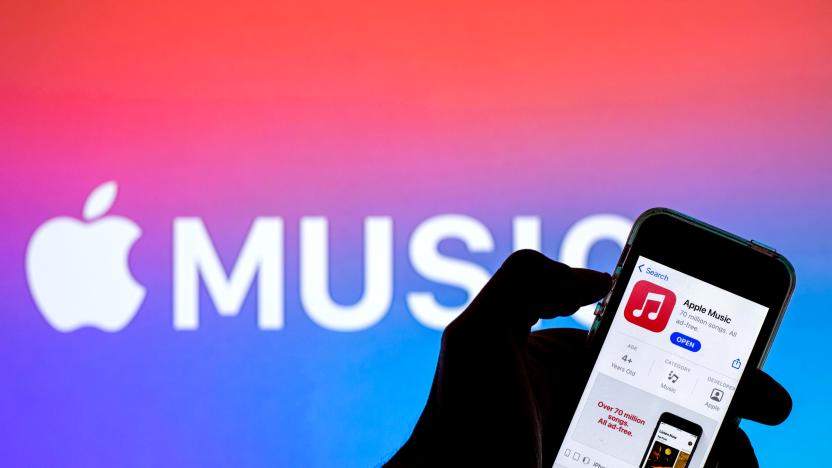
Apple Music pays a penny per stream, double Spotify's rate
But Spotify users typically stream more songs, leading to higher payouts overall.
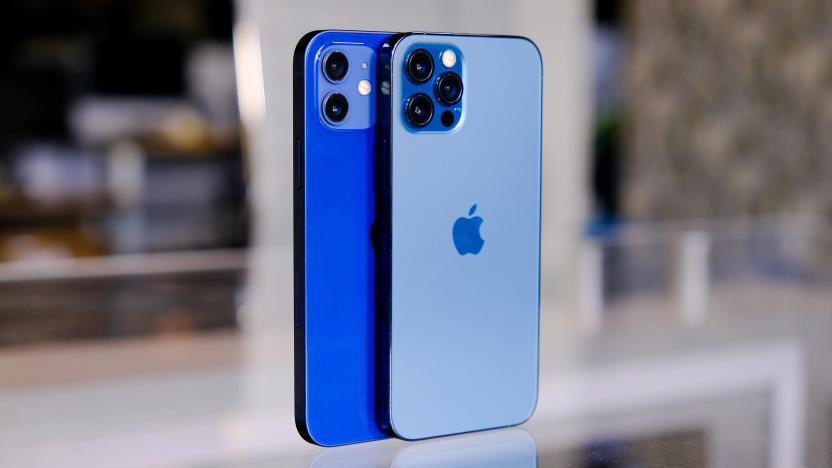
Recommended Reading: Apple's AR secret weapon is already in your pocket
Recommended Reading highlights the week's noteworthy writing on technology and more.
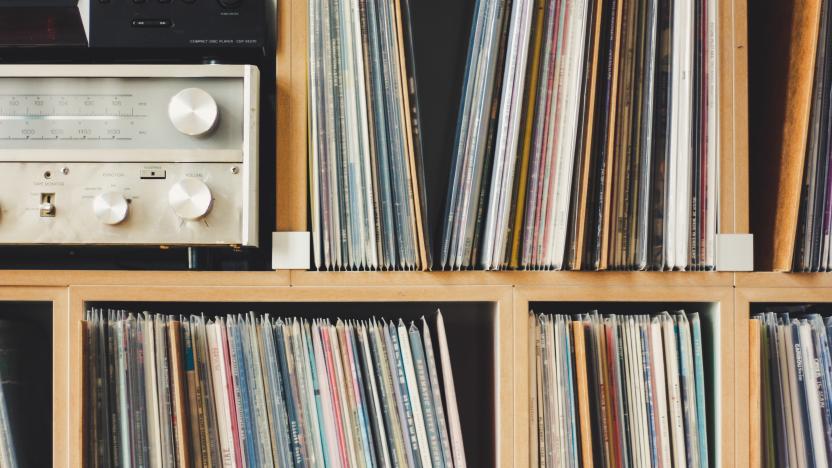
Vinyl outsold CDs for the first time since the '80s
Streaming now accounts for 85 percent of revenue from recorded music, according to the RIAA.

Streaming services join music industry 'blackout' over death of George Floyd
The music industry is planning to stage a “blackout day” today in support of protests around the alleged murder of George Floyd at the hands of Minneapolis police.
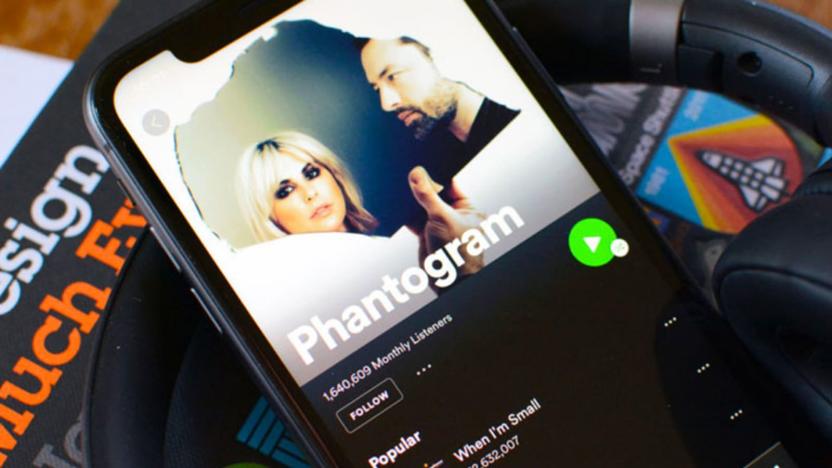
Spotify’s COVID-19 Music Relief page makes it easy to donate to artists
Since the coronavirus pandemic began, forcing music venues to close and cancel shows, the music industry has been looking for ways to adapt. Several streaming giants have pledged to contribute to the MusiCares' COVID-19 Relief Fund, entertainers have pivoted and platforms like Bandsintown and Twitch are helping artists make money via streaming. Now, Spotify wants to make it easier for everyone to donate to the organizations supporting the music community.
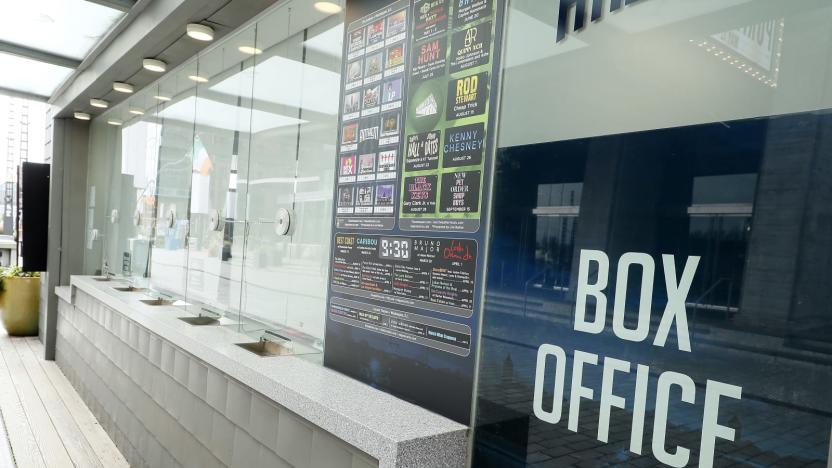
Recommended Reading: What happens when bands don't tour
How coronavirus is destroying the livelihood of music's behind-the-scenes workforce Samantha Hissong, Rolling Stone By now, you've watched, or at least heard about, a musician who's cooped up at home turning to livestreams to connect with fans. While that does give the masses some form of entertainment to replace live events and tours, it doesn't help the behind-the-scenes crew who are out of work for the foreseeable future. Rolling Stone explains how stage crew, venue employees and more have been struggling since the all events came to a halt earlier this month.

Bandsintown will help artists promote livestreams
As musicians cancel concerts due to the coronavirus, bands like the Dropkick Murphys are turning to livestreams as a way to connect with fans and potentially recoup some of the money they're losing. Today, the concert-discovery app Bandsintown announced a new Watch Live feature that will let artists send push notifications when they livestream shows. Bandsintown is also launching its own Twitch channel.

Lawsuits claim Amazon, Apple and more are streaming unlicensed music
When you walk into a bar, hotel or store, you probably hear music. The same goes for when you tune into a TV channel or radio station. Those businesses are supposed to pay royalties to the artists for using their music. Collection firms like Pro Music Rights (PMR) are tasked with monitoring these things. And they've had a lot more work on their hands, now that they need to keep track of streaming services which must properly license the songs they add to their libraries. PMR -- which sued Spotify last year -- alleges that 10 of the biggest services have been streaming unlicensed music from artists the company represents, and has filed lawsuits against each.
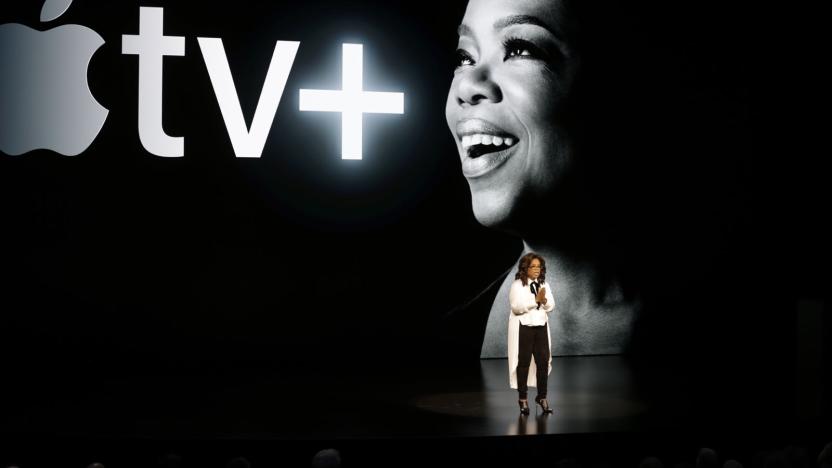
Recommended Reading: Apple's ambitious TV plan
Can Apple hack it in Hollywood? We talk to the man behind Apple TV+ Stuart McGurk, GQ UK Apple officially revealed it's TV streaming service in March, but it won't debut for the masses until this fall. There have been all kinds of reports swirling about content, including reports that Apple executives were micromanaging creative direction. GQ sat down with senior vice president of Internet Software and Services Eddy Cue to find out more about TV+, and get some clarity on a few of those rumors.
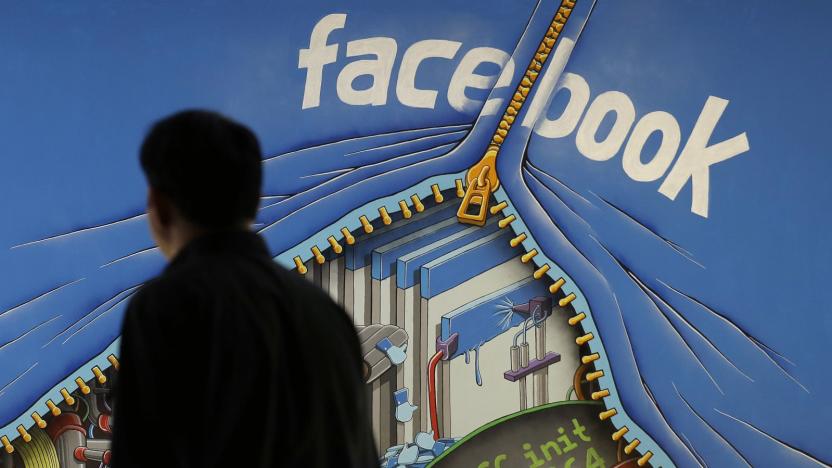
Recommended Reading: Facebook moderator PTSD
Bodies in seats Casey Newton, The Verge The job of moderating toxic content on social media is a daunting task. It also takes a massive psychological toll on those doing it. The Verge has first-hand accounts from the worst-performing Facebook moderating site in North America. People who worked there describe dire working conditions, harassment and their struggles with PTSD.

Recommended Reading: The music streaming payday won't go to artists
The record industry expects a windfall. Where will the money go? Marc Hogan, Pitchfork It's no secret the music industry is booming on the back of streaming services. However, it seems like not much will change in terms of where all the money goes. Pitchfork explains that much of the revenue will stay in the "upper echelon" of the industry rather than going to most of the people actually making music. "And yet, just as it's been throughout the history of recorded music, most of the money will not go to artists," Marc Hogan writes.

Streaming now accounts for almost half of global music revenue
Streaming has driven the US music industry for a few years. Last fall, streaming was responsible for up to 75 percent of the country's total music industry revenue. The 2019 IFPI Global Music Report, released today, shows the global scale of that trend. Streaming revenue grew by 34 percent in 2018 and accounted for 47 percent of total music revenue worldwide.

Editorial: RIAA takedown requests and ad complaints are missing an opportunity
As noted here, the RIAA has issued 10 million takedown requests to Google in an attempt to close off paths to sites that facilitate music downloading. At the same time, a related phenomenon is fueling the fire of rightsholder outrage: Brand advertising that appears on download sites and generates revenue for those businesses. These two aspects of the internet's ecosystem -- finding free music downloads through search engines, and ad-supported sites expediting illicit music acquisition -- represent deeply rooted challenges to media owners. At the same time, as with most challenges, there is a flip side of opportunity. The difference between capitalizing on an opportunity and being defeated by its challenge is the difference between getting in front of reality and falling behind it. The RIAA is regarded by many as the poster organization for denial of reality. A reversal of strategy and tactics might get big media owners in front of 21st century realities.

Deezer announces ambitious global rollout, ignores US and Japan
Deezer added a few notches to its music streaming belt yesterday, with the announcement of its long awaited rollout to (nearly) every corner of the globe. The launch, confirmed at Le Web in Paris yesterday, has already brought the service to both Ireland and the Netherlands, with plans to expand across Europe by the end of this month. Users in Canada and Latin America can expect to receive the French service by the end of January, Australia and Africa should see it by the end of February, and everyone else by the middle of next year. Conspicuously absent from that list are the US and Japanese markets, both of which have been passed over "due to market saturation and low growth forecasts," as well as the fact that the two countries comprise "only" 25 percent of worldwide music consumption. Le sigh. [Thanks, Paulo]

Apple's iCloud bags last major record label, will cost $25 / year to sign up?
We'd heard that Universal was the only holdout, and now CNET says the deal is done -- Apple has reportedly signed all four major record labels for its upcoming iCloud service. We'll be bringing you all the confirmed details on June 6th, but while you wait, here's some food for thought: the Los Angeles Times says that Apple will eventually charge somewhere around $25 a year for a subscription to the cloud. That will help supplement the 58 percent piece of the pie it's planning to take from the music industry for songs distributed though the network, and possibly some ad revenue as well. 30 percent will reportedly go to the labels, and another 12 percent to publishers, who will apparently be signing their own agreements with Apple tomorrow. Update: There's actually an interesting discrepancy between the two sources here: the LA Times reports that Apple's taking that nice, juicy 58 percent, but CNET says that the labels will take 58 percent while Apple claims its traditional 30 percent instead. We're investigating. Update 2: The LA Times has updated its piece, with different percentages still -- reportedly, Apple will take 18 percent, publishers get 12 percent, and labels 70 percent of the proceedings.

Bon Jovi says Steve Jobs killed music business
Is Steve Jobs music's savior, or is he the angel of death? Jon Bon Jovi cast his vote in The Sunday Times Magazine; the American rock musician thinks Jobs is "killing" the music industry with iTunes. The massive success of iTunes, says Bon Jovi, has caused the "magical" experience of buying records in a store to disappear. "Kids today have missed the whole experience of putting the headphones on, turning it up to 10, holding the jacket, closing their eyes and getting lost in an album; and the beauty of taking your allowance money and making a decision based on the jacket, not knowing what the record sounded like, and looking at a couple of still pictures and imagining it," the rocker told The Sunday Times Magazine. Bon Jovi says that "in a generation from now people are going to say: 'What happened?' Steve Jobs is personally responsible for killing the music business." I am not sure the record industry would completely agree with Bon Jovi's assessment of the situation. Labels and recording artists have sold more than 10 billion songs through Apple's music store since it launched on April 28, 2003. Today, the iTunes Store is the top music vendor in the United States and has proven to be a worthy competitor to the illegal peer-to-peer and music download services that preceded it.

Jon Bon Jovi accuses Steve Jobs of putting a shot through the heart of music
Steve Jobs, according to musical legend Jon Bon Jovi, is "personally responsible for killing the music business." This strident (and economically false) accusation comes from an interview he conducted with Britain's Sunday Times, where he candidly sets out his dismay at this century's move away from music distribution on physical media and toward ubiquitous download portals. Bon Jovi's nostalgia shines through in his detailed account of the "magical" experience of picking up records and enjoying their sweet touch and soothing analog tones -- though we're not sure how he missed out on the fact that CDs, not downloads, were the first to stab a dagger of digital convenience through the hole in his record collection. Still, Bon Jovi thinks Apple's iTunes success is to blame for the loss of our collective innocence and bright-eyed enthusiasm for music. What do you think?

Apple informs labels that iTunes song previews will be 90 seconds long, hopes they don't mind?
It's all up there in black and white, but we'll be happy to spell it out again here -- it seems that Apple has decided to extend the length of iTunes song previews from 30 seconds to 90 seconds. Sounds just fine to us, but not to the recipients of this letter, who are told the change is happening whether they like it or not and it's for their own good. "We believe that giving potential customers more time to listen to your music will lead to more purchases," the document reads, but without giving the music labels any way to say no. We don't actually know the origin of this particular document, so we're not saying this is a done deal by any means, but if the letter's legit you're looking at the world's largest online music store telling the labels to put up and shut up -- or else peddle their tunes somewhere else. Update: It's worth noting that CNET reported that iTunes song previews might double in length about two months ago.

iTunes song previews will be extended to 90 seconds in US store
Music site Symphonic Distortion reports Apple has sent word that song previews in the US iTunes Store will soon be extended to 90 seconds, up from the 30-second previews the store has featured until now. The only caveat is that songs must be longer than 2 minutes, 30 seconds in order to get a 90-second preview; shorter songs will stay at a 30-second preview. Makes sense. The extension in song preview lengths was reportedly supposed to happen earlier this year, but the complex state of licensing issues in the music industry reportedly held up the process. Either those issues have been resolved, or Apple has decided to play hardball -- the new licensing agreement basically states that by keeping their music on the iTunes Store, labels agree to allow 90-second song previews. Any label that doesn't want 90-second previews of its songs must withdraw its music from the iTunes Store under the new licensing terms ... and since doing so would do serious damage to the bottom line of most music labels, it looks like 90-second song previews are finally here, and hopefully here to stay. [via Mac Rumors]






